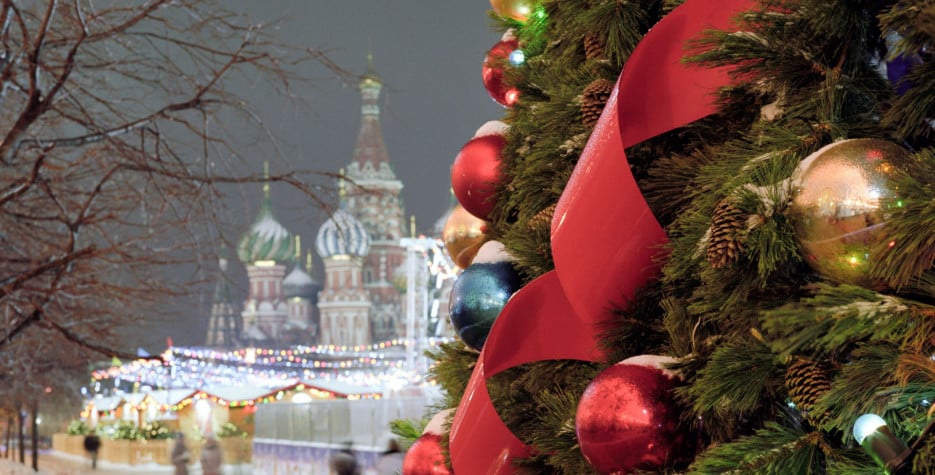Orthodox Christmas in Russia
Despite having the world's biggest Orthodox Christian community, during the period of the Soviet Union, Christmas was effectively banned as it was not officially recognised by the atheist Soviets.
Christmas was reinstated as an official holiday in 1991: on December 27th 1990, in response to an appeal by Patriarch Alexy II, the Supreme Soviet of the RSFSR declared Christmas a holiday. The resolution came into effect on January 14th 1991.
Since its reinstatement, the holiday has not proved to be overwhelmingly popular. In fact, many Russians may not celebrate the day at all, while others will just have a small family dinner. Very few Russians will exchange gifts.
The Russian government often gives extras days off around the seventh. This can create a very long holiday when the days are joined with the long New Year's break.
When is Orthodox Christmas?
The Orthodox Church recognises January 7th as the day that Jesus was born. Elsewhere in the world, Christmas is celebrated on December 25th.
Orthodox Christians are estimated to number between 250 and 300 million people. The largest number of Orthodox Christians live in eastern and southeastern Europe, including Russia and Ukraine. There are also significant Orthodox Christian populations in the Middle East and in Ethiopia.
The difference in the timing of the Christmas celebrations stretches back to 1582, when Pope Gregory XIII, ruled that the Catholic Church should follow a new calendar – called the Gregorian calendar, as it was closer to the solar calendar than the Julian calendar.
The Julian calendar now runs 13 days behind, so Orthodox Christmas falls on January 7th—through 2099; in 2100, when the world next omits a leap year, it will move to January 8th.
History of Orthodox Christmas
The Julian calendar had been established by Julius Caesar in 46 B.C.
Because it was the Catholic pope who ruled on the adoption of the new calendar, many churches not aligned to the papacy ignored it, such as Protestants and the Eastern Orthodox church. Protestants accepted the new calendar in the early 1700s.
In 1922, the patriarch of Constantinople decided that the Gregorian calendar should be followed for the observance of Christmas, but not for Easter, and this edict was followed by many of the other Orthodox churches.
The majority of Orthodox believers, including the Russian Orthodox Church, Egyptian Coptics, Ukrainian churches, Serbs, Macedonia, and the Mount Athos monks in Greece, celebrate Christmas on January 7th. The churches in Romania, Bulgaria, Cyprus, and Greece mark it on December 25th along with other Christian denominations.
The Armenian Orthodox Church observes Christmas Day on January 6th. This was the original date for Christmas until the 4th century, rather than some Julian/Gregorian adjusted date.
Orthodox Christmas Traditions
At midnight on Christmas Eve, the festive liturgy is served in all churches. At the end of the service, a lighted candle, symbolizing the Star of Bethlehem, is brought out and placed in the middle of the church.
Christmas marks the start of a 12-day season commonly referred to as Christmastide or Yuletide. According to the Orthodox canons, believers should offer prayers glorifying Jesus Christ. In the folk tradition, Christmastide has always been a time of festivities, outdoor games, and performances by mummers, fortune-telling, and caroling.
The Christmas period ends with the feast of the Epiphany on January 19th, which marks the baptism of Jesus Christ.
Food is also an important part of Orthodox Christmas celebrations, and the customs vary in different regions. In Russia, a special porridge made from wheat and rice called "Kutya" is made on Christmas Eve and they are eaten often from a communal bowl symbolizing unity. Some parts also have a tradition of throwing food up to the ceiling. It is believed that if it sticks to the ceiling, it will bring good luck.


